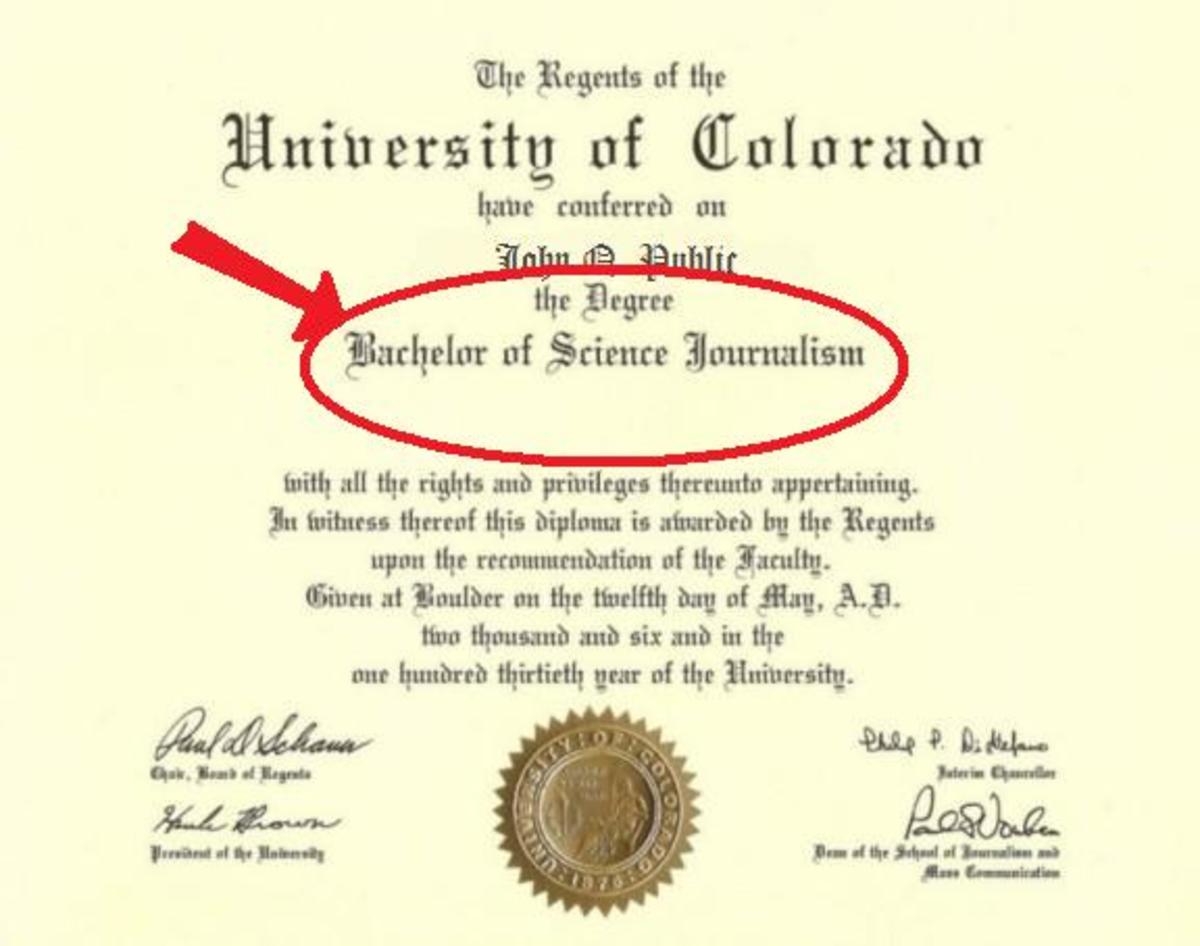StudyinPjs - www.StudyInPjs.com studyinpjs com Study In PJs
StudyinPjs.com - Study in PJs - Study in Pajamas

Considering getting your degree online? You are certainly not alone. Many people from all stages of life are choosing to pursue their education through online degree programs. In fact, the field of online education is growing extremely fast, which is great news for those looking for a way to get the education they need by means of a flexible online program
However, as with any booming industry, there are those who are trying to take advantage of the situation by offering sub-par, over priced, or even outright fraudulent degree programs. Additionally, even if the degree program is 100% legit, you still need to consider whether or not getting your degree online is the proper course of action for you. These five questions should help guide you on your way to having a pleasant and productive online education experience.
Question 1: Is My Online Degree Program Legit?
This is the number one scam to watch out for when it comes to getting your education online. So called "degree mills" will claim to offer you a college degree without requiring very much work out of you. They will pitch these degrees using terms like "life experience degree programs," which claim to take your previous experience into account, and offer you a "degree" based on them.
As nice as this might sound to some, its all a fraud. You can't get a legit degree without putting some time into accredited coursework, period. Any degree you get from these programs will be nothing but an expensive piece of paper.
To understand what these diploma mills are doing, lets talk a bit about the concept of accreditation. To be considered a real degree program, an online course must be officially accredited by one of several accreditation boards. These boards look at the course material, and how its being taught, and determine whether or not it provides sufficient background in the material to warrant being counted as a legitimate degree program. If it doesn't meet these standards, the program isn't accredited, and thus employers and others can have no confidence in the quality of the degree. Since degree mills, in general, offer no actual education, they are not accredited, and therefore are simply scams.
The good news is that it is easy to check to see if a program is accredited or not. Simply search this site, from the U.S. Department of Education, for your degree program. If its legit, it will be on the list, with details about the accreditation. If its not on the list, run, don't walk away. Make sure you do at least this much homework before enrolling in any online degree program. A degree mill may have promising claims, but it will never, ever be worth it in the end.
Question 2: Is My Online Degree Program Well Thought of by Employers?
This is a question many have about online degrees. What do employers really think about online education? It seems that the simple answer is that while there is definitely still some skepticism, perceptions are improving all around.
Let's talk about the skepticism first. According to this article from the New York Times, most employers still prefer traditional, campus based degree programs to online programs. Given the amount of fraud in the online degree space, as well as the relative newness of online programs in general, this is understandable.
However, it appears these negative impressions are changing as time goes on. This report from the Sloan Consortium suggests that those who view online education as just as valuable as face to face education are growing. I expect that as the field of distance education continues to grow, so will positive expectations. This is great news.
Question 3: Is My Online College Offering A Quality Program?
Not all legit, accredited online schools are created equal. Quality of online programs can vary for many reasons, ranging from quality of the course material, course organization, easy of use of the website, and many more. Unfortunately, there isn't a simple quick and easy resource to turn to to get all this information. However, there are a few things you can investigate to gauge the quality of an online degree program.
First of all, be sure to do a search and see if you can turn up some basic articles about a particular school. Try to find real student experiences, and not just sites trying to sell. Forums and such are good places to find genuine student reviews. See if people are getting a good education and good customer service from the college.
Also, many online programs offer "tours" of their learning environment. Exploring this is a good idea, because you will be spending a lot of time navigating their interface when participating in the class. If you find the site confusing, you should probably look elsewhere.
Additionally, if you're trying to get work with a specific employer, or get skills for a certain job, don't be afraid to call up the company and ask them what programs they recommend. They might have had some good luck with certain programs, and will be able to point you in the right direction.
Question 4: Is My Online College Competitively Priced?
This is probably one of these easiest points to address, but an important one still. You don't want to pay more than you have to to get your degree, so be sure to compare prices once you've picked out the programs that work for you. Tuition rates should be clearly posted in the college's information packet, and if they are not, I would think twice about enrolling. Take the time to compare prices, and you will be much happier.
Question 5: Is My Online Degree Program Relevant to My Goals?
This is a very important point. After all, why should you put in all this time and effort if you're not accomplishing what you really want? You need to make sure that your degree program of choice is helping you achieve your goals rather than simply wasting your time and money.
One of the best ways of checking the relevancy of a degree program is to request information from the school about the course list. When you look at the course list for a given program, the individual courses should seem relevant and interesting to you. If they aren't, you should consider looking elsewhere.
However, if most of the courses sound interesting and relevant to your goals, then by all means consider pressing forward and enrolling. You can achieve a lot through higher education, and doing it online can help make it possible for those on tight schedules.
Wrap Up
I hope you will take the time to carefully consider each of these questions before enrolling in any sort of online degree program. Though it may seem tedious at some points, having good, solid answers to each of these questions that you can really feel confident about will pay off tremendously when it comes to making the right choice for continuing your education on the Internet. Good luck with your search, and keep working towards those goals!
---
Online bachelor's degree programs are an attractive option for those considering enrolling in college or returning to college. Earning a bachelor's degree online could advance you professionally, providing the education, skills and credentials to move ahead. An online bachelor's degree can be earned in nearly every field of study. Four million students are presently enrolled in accredited online college programs, accounting for 20 percent of all students enrolled in higher education. Finding out why so many have opted to complete their education online will explain the fantastic growth of online degree programs.
The most common bachelor degrees conferred are the Bachelor of Arts, or B.A. and the Bachelor of Science, or B.S...
The Bachelor of Arts degree is a four year undergraduate degree, requiring at least 120 credit hours (including any transfer credits accepted from accredited programs). The B.A. degree is granted after the successful completion of the equivalent of four years full time study with heavy emphasis on liberal arts and sciences, providing a broad, non-specialized knowledge base. Online programs conferring a B.A. degree can sometimes be completed in less than four years. Many people completing a B.A. go on to complete a master's or doctoral degree in a liberal arts discipline.
The Bachelor of Science degree also requires the completion of at least 120 credit hours, with a strong core of liberal/general education courses, but is discipline specific. This means you must declare a "major" by choosing to concentrate in a specific subject area, then complete required courses in that particular discipline, along with electives that will round out your undergraduate program. You will work with a counselor or advisor to plan your program so that you will have everything completed in the correct sequence before graduation. Following graduation, many people continue on to graduate level programs to build on the knowledge gained and increase their potential for greater earnings.
A bachelor's degree program can be entered as a freshman, or first year student. Many enter following graduation from a two year community or junior college, transferring credit from coursework already completed.
Some of the more popular online bachelor's degree programs are B.S. in Education, B.S. in Business Administration, B.F.A, in Fine Arts, B.S.N. in Nursing and B.S.E.T. in Engineering Technology.
Why is online study becoming such a popular choice for earning a bachelor's degree? To begin with, online degrees from accredited four year colleges and universities are valuable. Early doubt over the marketability of an online degree has faded as graduates are proving the worth of their online education in the workplace. Those advancing their careers by going back to school are proof that getting an online degree pays off.
The diversity of course online course offerings appeals to many students. Nearly every field is now represented in online offerings. Students are able to sign-up for courses and programs not available in their own geographic area. Those who live in rural areas where transportation is a problem can log-on and attend a cyber class at a top accredited school-- without having to leave home. Where you live on the planet doesn't matter.
Being able to log-on twenty-four hours, seven days a week makes online learning very attractive to the adult learner. Controlling when and where coursework is done allows students to keep working and caring for their families. Although online programs have workloads equivalent to traditional "face-to face" programs, the work can be done according to a schedule that fits individual lifestyle. Busy families and single parents especially appreciate the flexibility.
Students not desiring an on-campus college experience can learn without having to meet face to face with anyone. Students who may be intimidated by on-campus involvement enjoy the freedom and privacy of learning online.
Many graduates of four year online programs remark that their online learning experience was exceptionally "student-centered" as students can tailor learning to their own learning style and usually work at their own pace. There is greater one-to-one interaction between instructor and individual student, as online programs are designed for frequent exchange of information and feedback. Most online degree programs operate around a collaborative model of processing and problem-solving. Students often experience a greater sense of community and camaraderie as they work and learn together.
Perhaps most importantly, online programs are just as rigorous and valuable as traditional coursework. Quality of online course offerings and instruction has been rated at least as high as traditional programs by both students and instructors.
One last consideration is financing. Students enrolling in online college programs are eligible for the same funding sources as on campus students, including Federal Student Loans.
If your goal is to advance in your career, change careers, or add skills and credentials, you may want to consider the many benefits of an online bachelor's degree. Find out as much as you can. Make sure the schools you are considering are accredited and offer the program in the format you want. Talk to their admissions and financial aid offices. After getting the facts, weigh the pros and cons in light of your own goals and life situation. You may find choosing an online bachelor's degree program will get you where you want to go.








